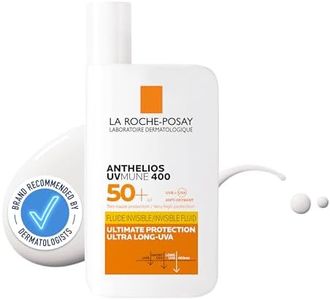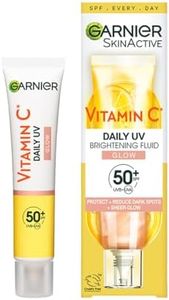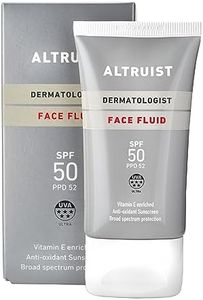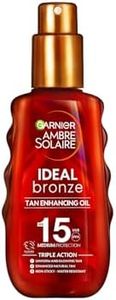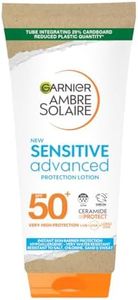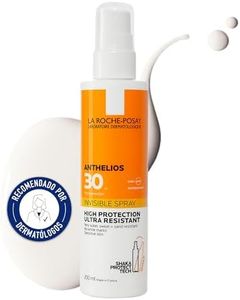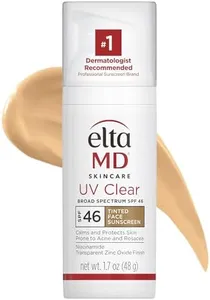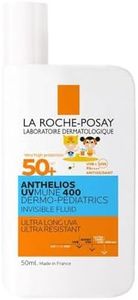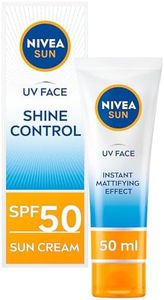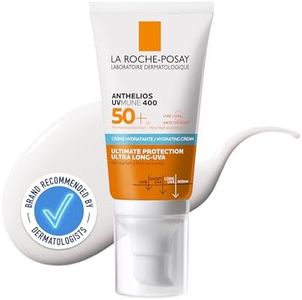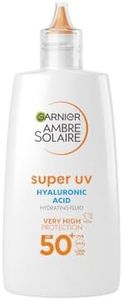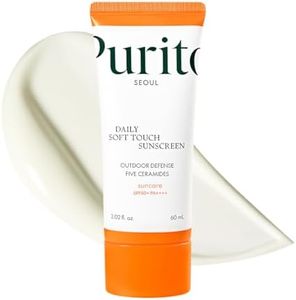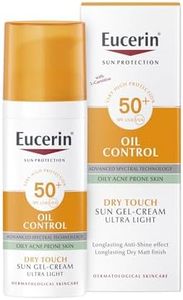We Use CookiesWe use cookies to enhance the security, performance,
functionality and for analytical and promotional activities. By continuing to browse this site you
are agreeing to our privacy policy
10 Best Non Greasy Sunscreen
From leading brands and best sellers available on the web.Recommended lists
Buying Guide for the Best Non Greasy Sunscreen
Choosing the right non-greasy sunscreen is essential for protecting your skin from harmful UV rays while ensuring comfort and ease of use. A non-greasy sunscreen is particularly beneficial for those with oily or combination skin, or for anyone who dislikes the sticky feeling some sunscreens can leave behind. When selecting a sunscreen, consider factors such as your skin type, the level of sun exposure you anticipate, and any specific skin concerns you may have. Understanding the key specifications of sunscreens will help you make an informed decision that best suits your needs.SPF (Sun Protection Factor)SPF measures how well a sunscreen can protect your skin from UVB rays, which are the main cause of sunburn. The higher the SPF, the more protection it offers. SPF values are typically divided into low (15-30), medium (30-50), and high (50+). If you have fair skin or plan to spend a lot of time outdoors, a higher SPF is recommended. For everyday use, an SPF of 30 is generally sufficient. Consider your skin type and the intensity of sun exposure when choosing the SPF level.
Broad Spectrum ProtectionBroad spectrum protection means the sunscreen protects against both UVA and UVB rays. UVA rays can prematurely age your skin, causing wrinkles and age spots, while UVB rays can burn your skin. Both types of rays can contribute to skin cancer. It's important to choose a sunscreen labeled as 'broad spectrum' to ensure comprehensive protection. This is crucial for anyone who spends time outdoors, regardless of the weather or season.
Water ResistanceWater resistance indicates how long the sunscreen remains effective while you are sweating or swimming. Sunscreens are typically labeled as water-resistant for either 40 or 80 minutes. If you plan to swim or engage in activities that cause you to sweat, a water-resistant sunscreen is a good choice. Remember to reapply it as directed, especially after swimming or towel drying, to maintain protection.
Formulation TypeSunscreens come in various formulations, including lotions, gels, sprays, and sticks. Non-greasy formulations are often found in gel or lightweight lotion forms, which are ideal for oily or combination skin types. If you prefer a quick application, sprays might be convenient, but ensure even coverage. Consider your skin type and personal preference when choosing the formulation, as this can affect how comfortable the sunscreen feels on your skin.
IngredientsThe ingredients in sunscreen can affect its feel and effectiveness. Look for sunscreens with ingredients like zinc oxide or titanium dioxide for a non-greasy feel, as these are often used in mineral sunscreens. Chemical sunscreens, which absorb UV rays, may contain ingredients like avobenzone or octocrylene. If you have sensitive skin, opt for a fragrance-free and hypoallergenic formula. Understanding the ingredients can help you choose a sunscreen that suits your skin type and any specific concerns, such as sensitivity or acne.
